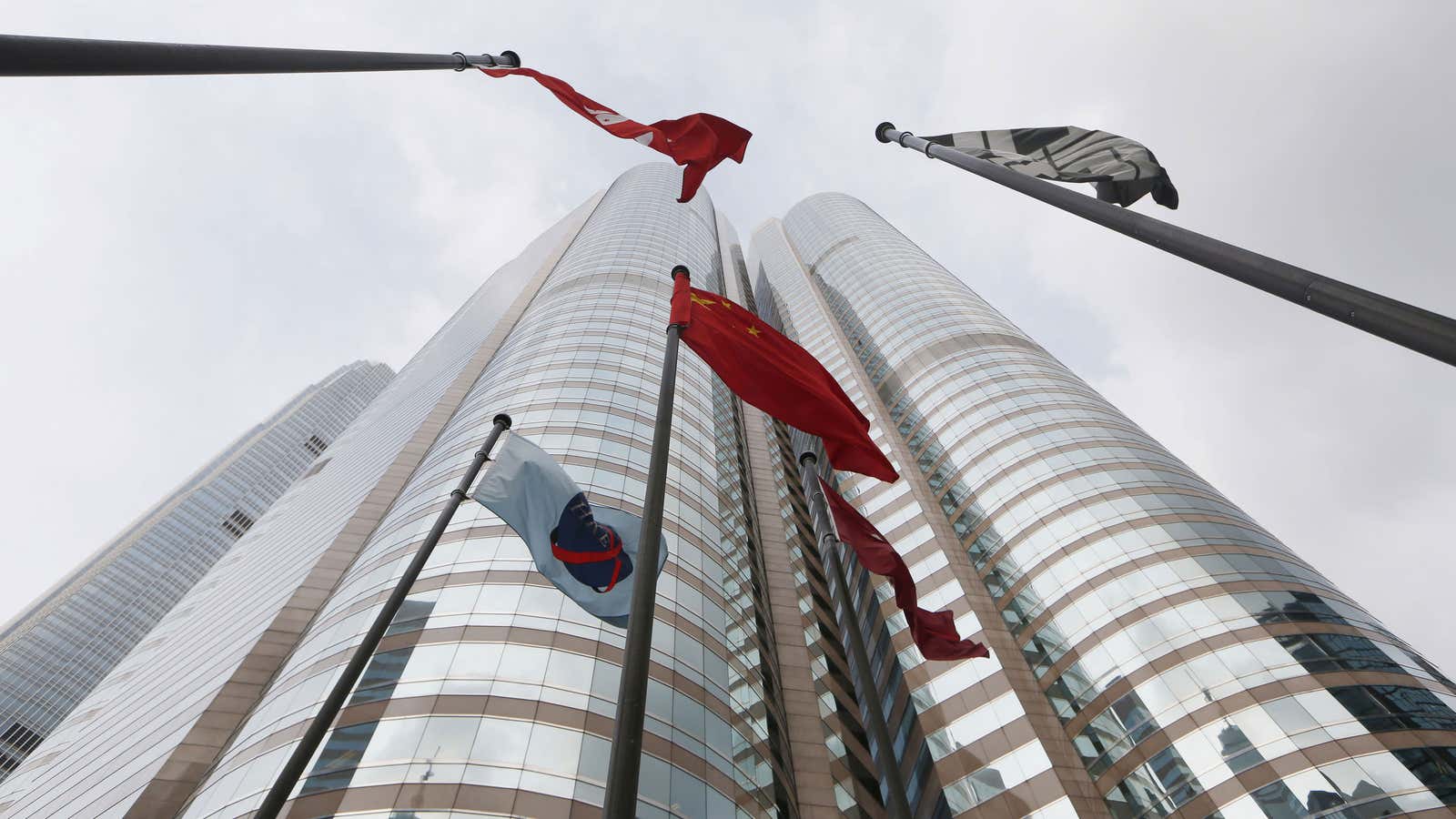Already enduring the worst IPO year since the depths of the global financial crisis, bankers in Hong Kong can’t have been too thrilled when the city’s securities regulator last week said it wanted them to be subject to criminal and civil penalties for false information in offering prospectuses.
The Hong Kong Stock Exchange (HKSE) is currently poised to rank fourth or fifth in the world this year in overall IPO volumes. But IPO funds raised are still a paltry one-third of what they totaled in 2011, when Hong Kong topped global charts. Of course, it isn’t exactly alone in its 2012 dismal performance. Like other markets, the Hong Kong Stock Exchange (HKSE) has been badly affected by jittery issuers pulling planned IPOs because of market volatility.
What’s unique to Hong Kong, though, is the shortfall in offerings from Chinese state-owned behemoths—for example, Agricultural Bank of China’s 2010 $19.2-billion IPO, which is still the biggest in history. Throughout the past decade, these have helped to power Hong Kong to the top of the global market rankings. But that’s a pool that observers say has now largely dried up. And though multi-billion dollar listings by state companies like China Guangfa Bank and China Railway Materials look to be in the pipeline for 2013, the larger trend still holds—meaning that Hong Kong’s bankers must now make up for the slowing flow of big state companies with more offerings from smaller, private issuers.
Therein lies the regulatory rub: the odds of a rotten offer go up when bankers are dealing with, say, 10 small issuers, as opposed to a single big one. As a result of the Hong Kong Securities and Futures Commission’s proposal to put sponsors on the hook for potential issuer fraudulence, banks that act as lead arrangers—known as “sponsors”—plan to exercise more caution in accepting mandates, says Edward Au, Deloitte’s China co-leader for public offerings. “If it will be a problematic case, they will not want that case to go ahead,” he tells Quartz. But though this could frustrate the hopes of a few Chinese companies, says Au, ”We don’t see it having a big impact overall on the pipeline of offerings.”
Philippe Espinasse, a former investment banker in Hong Kong and author of IPO: A Global Guide, doesn’t think any issuer will be turned away. “Issuers will still find people to do their listings,” he says, but the cost could be higher as smaller sponsoring banks that handle an occasional listing will either have to staff up for more comprehensive listing preparation or leave the business to bigger banks. “Some of the smaller guys may go out of business or do something else.”
Still, a tough 2012 has pent up demand for capital, which bodes at least somewhat well for the HKSE’s pipeline. All in all, KPMG sees the volume raised via Hong Kong IPOs next year rebounding by around 50%, putting it at around HK$125 billion (US$16.1 billion). “We expect that while market volatility will persist, there exists a backlog of deals to be launched as market sentiment improves,” says KPMG partner Paul Lau. “Although the IPO uptake in December 2012 may not be strong enough to form a momentum carrying forward to the first half of 2013, we do expect the market to pick up from mid-2013 when economic uncertainties ease.”
